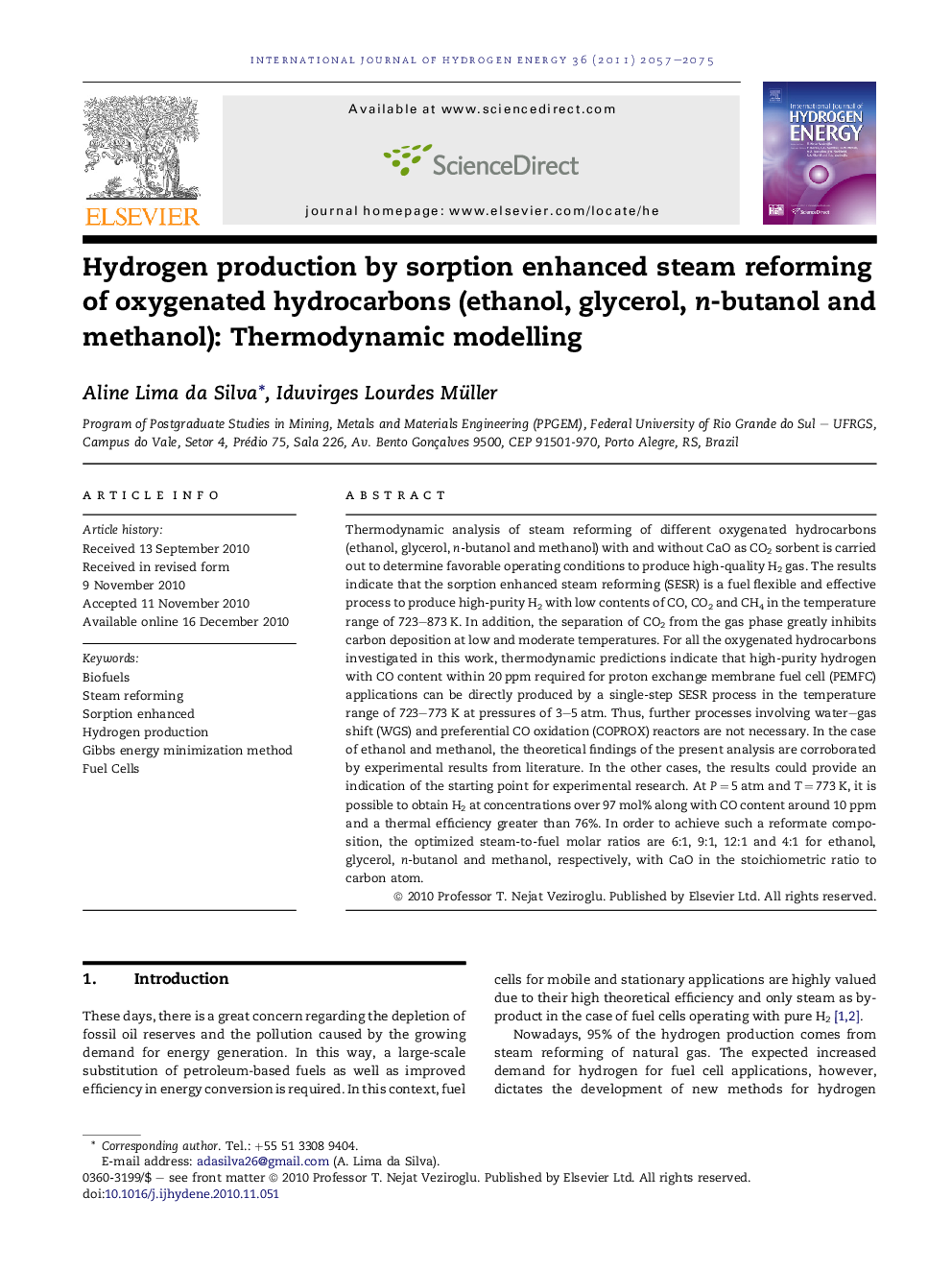| Article ID | Journal | Published Year | Pages | File Type |
|---|---|---|---|---|
| 7724370 | International Journal of Hydrogen Energy | 2011 | 19 Pages |
Abstract
Thermodynamic analysis of steam reforming of different oxygenated hydrocarbons (ethanol, glycerol, n-butanol and methanol) with and without CaO as CO2 sorbent is carried out to determine favorable operating conditions to produce high-quality H2 gas. The results indicate that the sorption enhanced steam reforming (SESR) is a fuel flexible and effective process to produce high-purity H2 with low contents of CO, CO2 and CH4 in the temperature range of 723-873Â K. In addition, the separation of CO2 from the gas phase greatly inhibits carbon deposition at low and moderate temperatures. For all the oxygenated hydrocarbons investigated in this work, thermodynamic predictions indicate that high-purity hydrogen with CO content within 20Â ppm required for proton exchange membrane fuel cell (PEMFC) applications can be directly produced by a single-step SESR process in the temperature range of 723-773Â K at pressures of 3-5Â atm. Thus, further processes involving water-gas shift (WGS) and preferential CO oxidation (COPROX) reactors are not necessary. In the case of ethanol and methanol, the theoretical findings of the present analysis are corroborated by experimental results from literature. In the other cases, the results could provide an indication of the starting point for experimental research. At PÂ =Â 5Â atm and TÂ =Â 773Â K, it is possible to obtain H2 at concentrations over 97Â mol% along with CO content around 10Â ppm and a thermal efficiency greater than 76%. In order to achieve such a reformate composition, the optimized steam-to-fuel molar ratios are 6:1, 9:1, 12:1 and 4:1 for ethanol, glycerol, n-butanol and methanol, respectively, with CaO in the stoichiometric ratio to carbon atom.
Keywords
Related Topics
Physical Sciences and Engineering
Chemistry
Electrochemistry
Authors
Aline Lima da Silva, Iduvirges Lourdes Müller,
